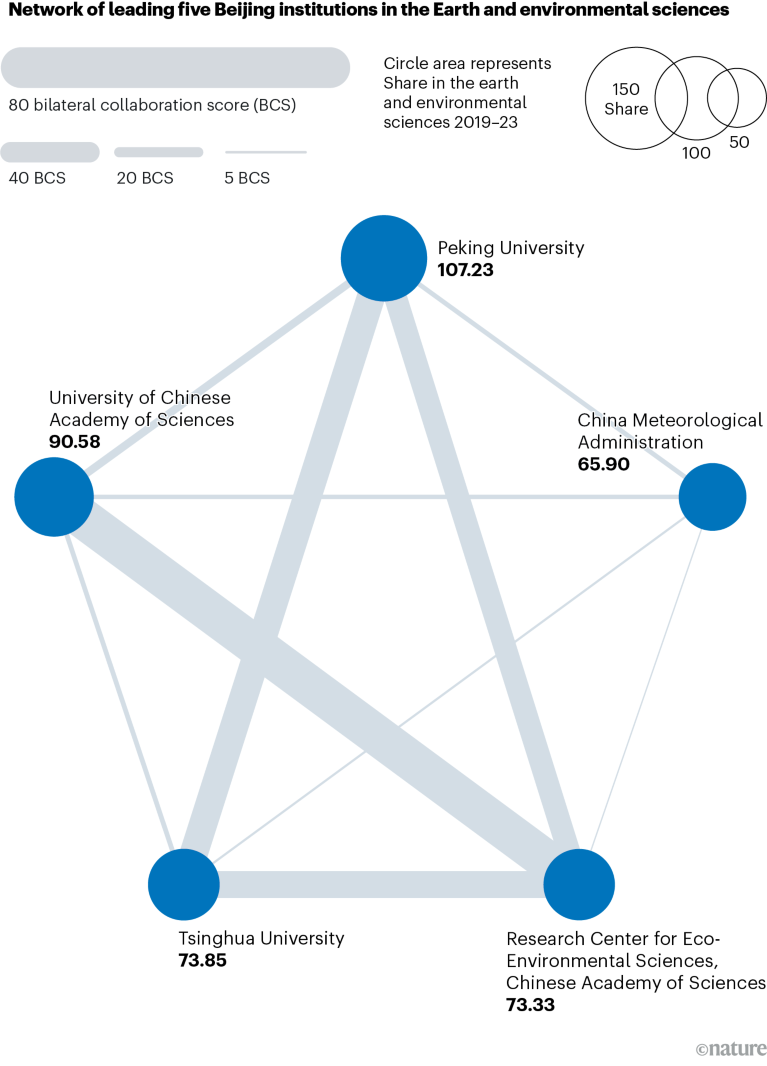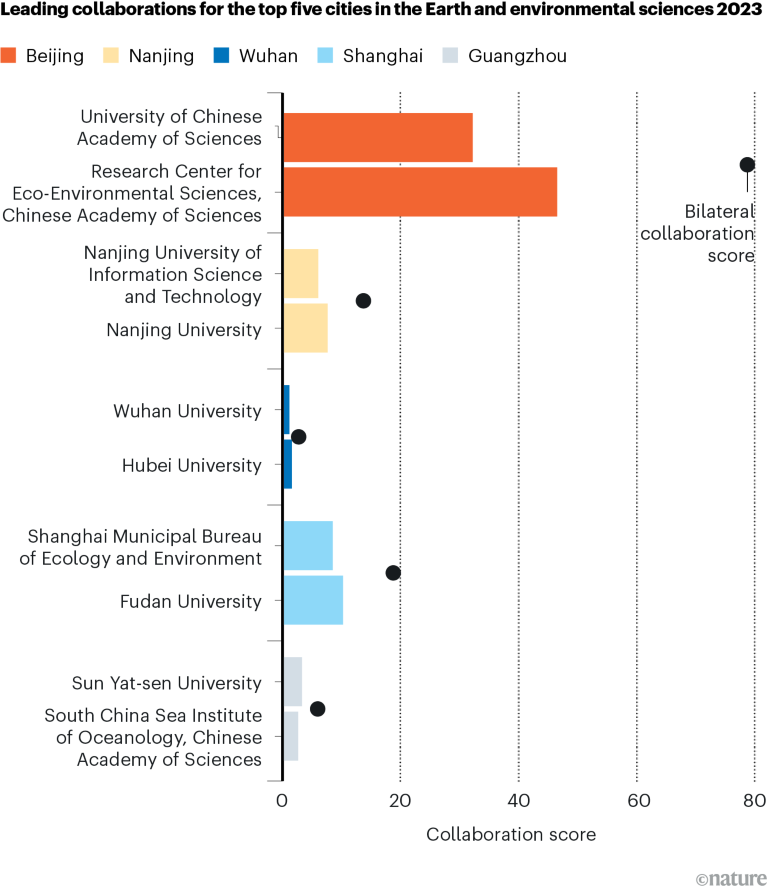With its continued focus on sustainability and ecological protection, China is cementing itself as a leader in Earth and environmental sciences. Beijing, Nanjing and Guangzhou, the leading three cities in the subject, respectively, have all recorded increases in adjusted Share between 2022 and 2023. Wuhan’s momentum is particularly strong — the city’s adjusted Share in the subject rose 16.24%, propelling it from 8th place in 2022 to 4th in 2023.
The four US cities in the top 10 have lost ground, each recording a decrease in their adjusted Share between 2022 and 2023. The Los Angeles metropolitan area, in 9th place, had an almost 20% decline in adjusted Share in 2023.
Mirroring a broader trend across all subjects in the Nature Index, the movement of smaller Chinese cities stands out this year. Nanjing, China’s 13th largest city by population size, contributes around 11.6% of the country’s Earth and environmental science research in the index. The city has retained 2nd place in the subject for the past four years.
The regional centres of Guangzhou and Qingdao, known for their water purification and renewable-energy initiatives, have also been improving their outputs, with increases of 106.3% and 179.8%, respectively, in adjusted Share between 2019 and 2023.
In 2019, Beijing’s Share in Earth and environmental sciences was more than double that of Baltimore–Washington, in 2nd place. In 2023, its Share has grown to almost five times that of Baltimore–Washington, which has fallen to 6th place in the subject. Several institutional partnerships have helped to drive a 60.3% increase in Beijing’s adjusted Share over the past five years, positioning it well ahead of its competitors. Among these are collaborations between the University of Chinese Academy of Sciences (UCAS), the Research Center for Eco-Environmental Sciences, Tsinghua University and Peking University.

Source: Nature Index; Data analysis: Aayush Kagathra; Data visualization: Tanner Maxwell and Simon Baker
With a bilateral collaboration score (BCS) of 78.71, the partnership between UCAS and the Research Centre for Eco-Environmental Sciences significantly outperforms other leading academic pairings in the top five cities for the subject. The collaborative efforts of the Shanghai Municipal Bureau of Ecology and Environment and Fudan University, in Shanghai, form the next strongest partnership (BCS 18.75). This, paired with Shanghai’s 94.9% increase in adjusted Share from 2019 to 2023, suggests that the city will continue to develop its capacity in the subject.

Source: Nature Index; Data analysis: Aayush Kagathra; Data visualization: Tanner Maxwell and Simon Baker
This article is part of Nature Index 2024 Science cities, a supplement produced with financial support from the Beijing Municipal Science & Technology Commission, Administrative Commission of Zhongguancun Science Park. Nature maintains full independence in all editorial decisions related to the content. For more information about Nature Index, see the homepage.
